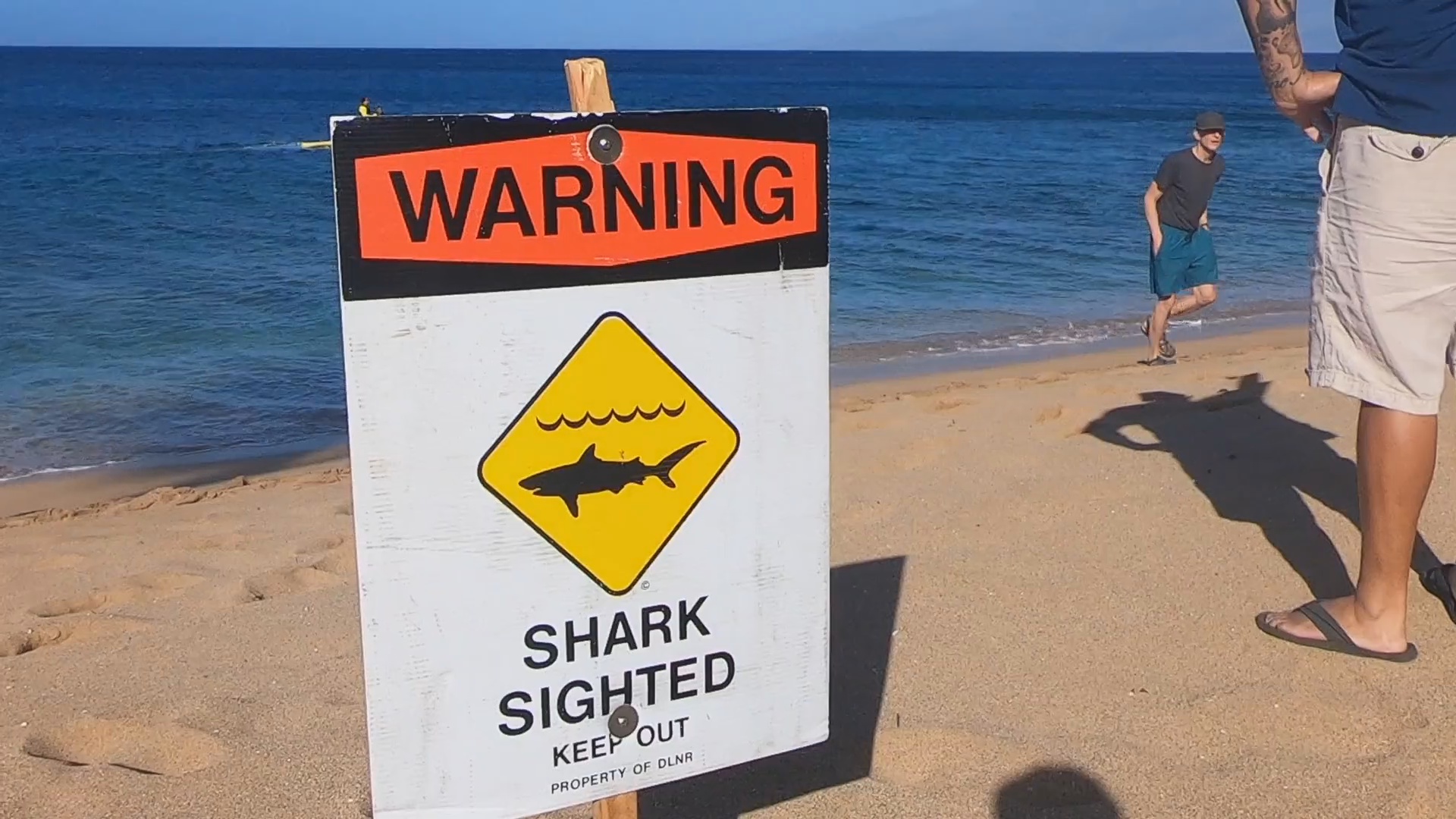(BIVN) – Hawaiʻi emergency officials report a woman has been taken to a hospital after a non-fatal encounter with a shark near Kukio. Several West Hawaiʻi beaches have been closed.
This message was issued by the Hawaiʻi County Civil Defense just after 10 a.m. HST:
The Hawaii Fire Department reports a shark attack at Kukio Bay in the North Kona District. The Department of Land and Natural Resources has closed Kukio Bay and nearby Kua Bay for the remainder of the day. The Fire Department will conduct an aerial survey tomorrow morning to determine if any closed beaches will be reopened.
From the Hawaiʻi Department of Land and Natural Resources:
Emergency medical crews, officers from the DLNR Division of Conservation and Resources Enforcement (DOCARE) and personnel from the DLNR Division of Aquatic Resources responded to a report of a non-fatal shark incident near the Kukio Resort Club House on Hawai‘i Island.
Around 8:50 this morning an ocean excursion tour group of 17 people (eight on stand-up paddle boards, six in canoes, two swimming) were in the ocean, when a jet ski operator told everyone a 10-foot Tiger shark was in the area. Initial reports indicate, one of the two women swimming apparently encountered a shark. This was about 200 yards offshore. She was transported to the North Hawai‘i Medical Center for treatment.
Standard shark incident protocols… call for shark warning signs to be posted for one mile in either direction from the incident. Additionally, public shoreline access at Kehakai State Park/Kua Bay and from Kukio, Four Seasons, and Hualalai resorts are closed today.
The Hawaiʻi DLNR offers these tips to reduce the risk of shark injury:
- Swim, surf, or dive with other people, and don’t move too far away from assistance.
- Stay out of the water at dawn, dusk, and night, when some species of sharks may move inshore to feed. But be aware that tiger sharks are known to bite people at all times of the day. (See graphic below.)
- Do not enter the water if you have open wounds or are bleeding in any way. Sharks can detect blood and body fluids in extremely small concentrations.
- Avoid murky waters, harbor entrances, and areas near stream mouths (especially after heavy rains), channels, or steep dropoffs. These types of waters are known to be frequented by sharks.
- Do not wear high-contrast clothing or shiny jewelry. Sharks see contrast very well.
- Refrain from excessive splashing; keep pets, which swim erratically, out of the water. Sharks are known to be attracted to such activity.
- Do not enter the water if sharks are known to be present, and leave the water quickly and calmly if one is sighted.
- Do not provoke or harass a shark, even a small one.
- If fish or turtles start to behave erratically, leave the water. Be alert to the presence of dolphins, as they are prey for some large sharks.
- Remove speared fish from the water or tow them a safe distance behind you. Do not swim near people fishing or spearfishing. Stay away from dead animals in the water.
- Swim or surf at beaches patrolled by lifeguards, and follow their advice.


by Big Island Video News11:44 am
on at
STORY SUMMARY
KUKIO, Hawaiʻi - The swimmer was taken to a North Hawaiʻi hospital after the non-fatal incident near the Kukio Resort Club House in West Hawai‘i.